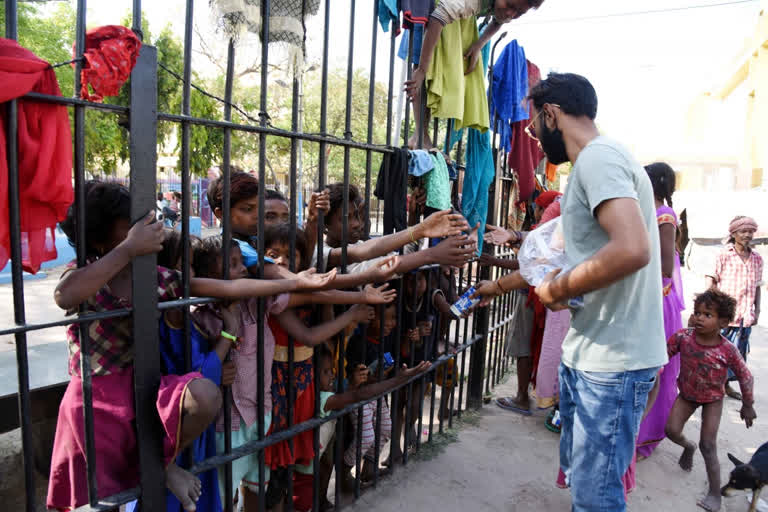New Delhi: With the COVID-19 pandemic wreaking havoc across the globe, the United Nations Children's Fund (UNICEF) has repeatedly warned that children, who are already suffering due to prevailing conditions, will also be among the most severely affected due to the fallout.
In an interview with ETV Bharat, UNICEF India representative Dr Yasmin Ali Haque said that of the 444 million children in India under the age of 18, the lockdown has badly impacted "a large population" either directly or through secondary impacts of the pandemic.
The worst-affected being the underprivileged children, who live on the streets, urban slums, and deprived rural areas.
"The COVID 19 pandemic has either directly or indirectly affected millions of children in India. Indeed, the most vulnerable children are those who are underprivileged whether they live on the streets, in urban slums, in deprived rural areas or indeed caught up due to their families migrating from where they work to their hometowns,” she said.
"UNICEF is working with union ministries, state authorities, and with district administrations on the identification of particularly vulnerable children, especially those who are unaccompanied and separated from their caregivers, to assure that they are safe and being looked after," she added.
Pointing out that Childline service, a government call service for children, has received more than 3 lakh calls, Haque said that the children are more vulnerable in a time like this, as they are more susceptible to sexual abuse and gender-based violence.
Read: COVID-19 having catastrophic effects on lives of children: UNICEF
"Their mental health and stress levels are also a cause of concern in times when schools are closed and their regular routine is disrupted. UNICEF is working closely with Childline to support and strengthen its capacity to respond to this emergency through further training on psychosocial care (PSS) and addressing violence against children," she informed.
And how is UNICEF going about it?
With its experience in battling previous health emergencies, Haque said that UNICEF is supporting the Indian government in the battle against COVID-19.
Haque said that the world body is working with Union Ministries, State authorities, and with district administrations in order to identify vulnerable children, especially those who are unaccompanied and separated from their caregivers, to ensure their safety and well-being.
"UNICEF is mobilizing various networks of stakeholders and groups, such as adolescent groups, youth groups, community-based organization networks, network of frontline functionaries, network of elected representatives, police including Child Welfare Protection Officers, to reach a large number of families, parents, children and youth in some cities with messaging," she informed.
Read: Children among most severely impacted by COVID-19: UNICEF
UNICEF has also supported the development of guidelines which include child protection issues, provisions for child friendly spaces, and prevention of stigma, apart from collaborating with psychaitric bodies to provide mental health services.
"Online orientation for almost 16,000 child protection officers on COVID-19 was also organized by the Ministry of Women and Child Development with the support of UNICEF. UNICEF is collaborating with the National Institute of Mental Health and Neuro-Sciences (NIMHANS) to provide specialized support to children in difficult circumstances due to COVID-19 using their digital platform. This includes children, also of migrant workers, in-home isolation as well as those quarantined and hospitalized in isolation facilities," she said.
Haque further added that the world body was concerned about the secondary impact of COVID-19 on children, and was hance working with the government on continued education, healthcare, sanitation, and social protection of children.
ALSO READ: Himachal Pradesh: 16-yr-old spreads awareness on COVID-19 on 'Hello Moginand'



